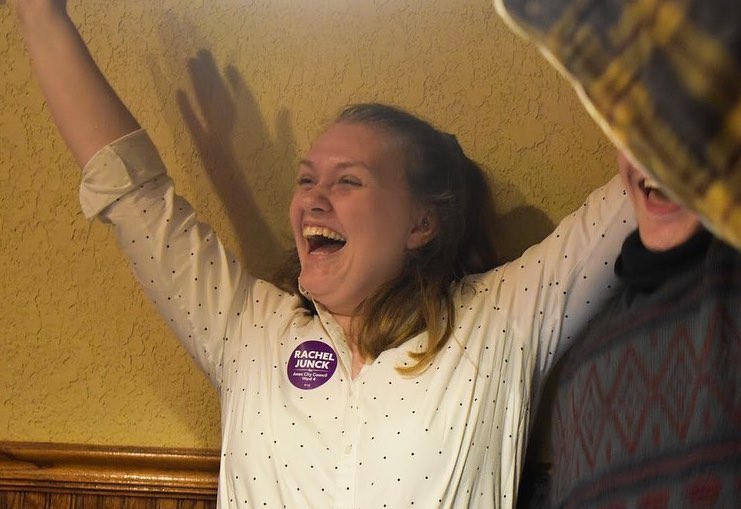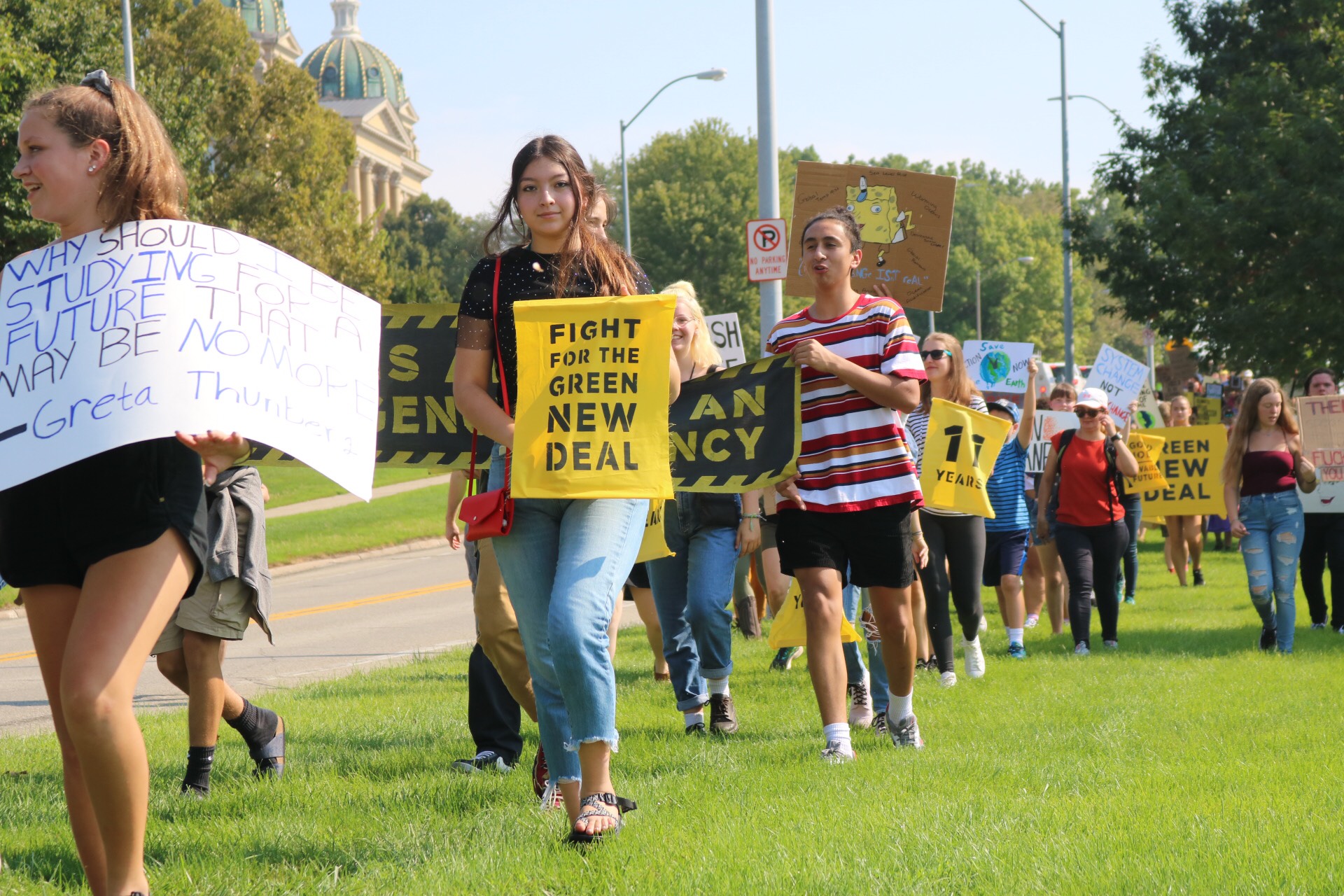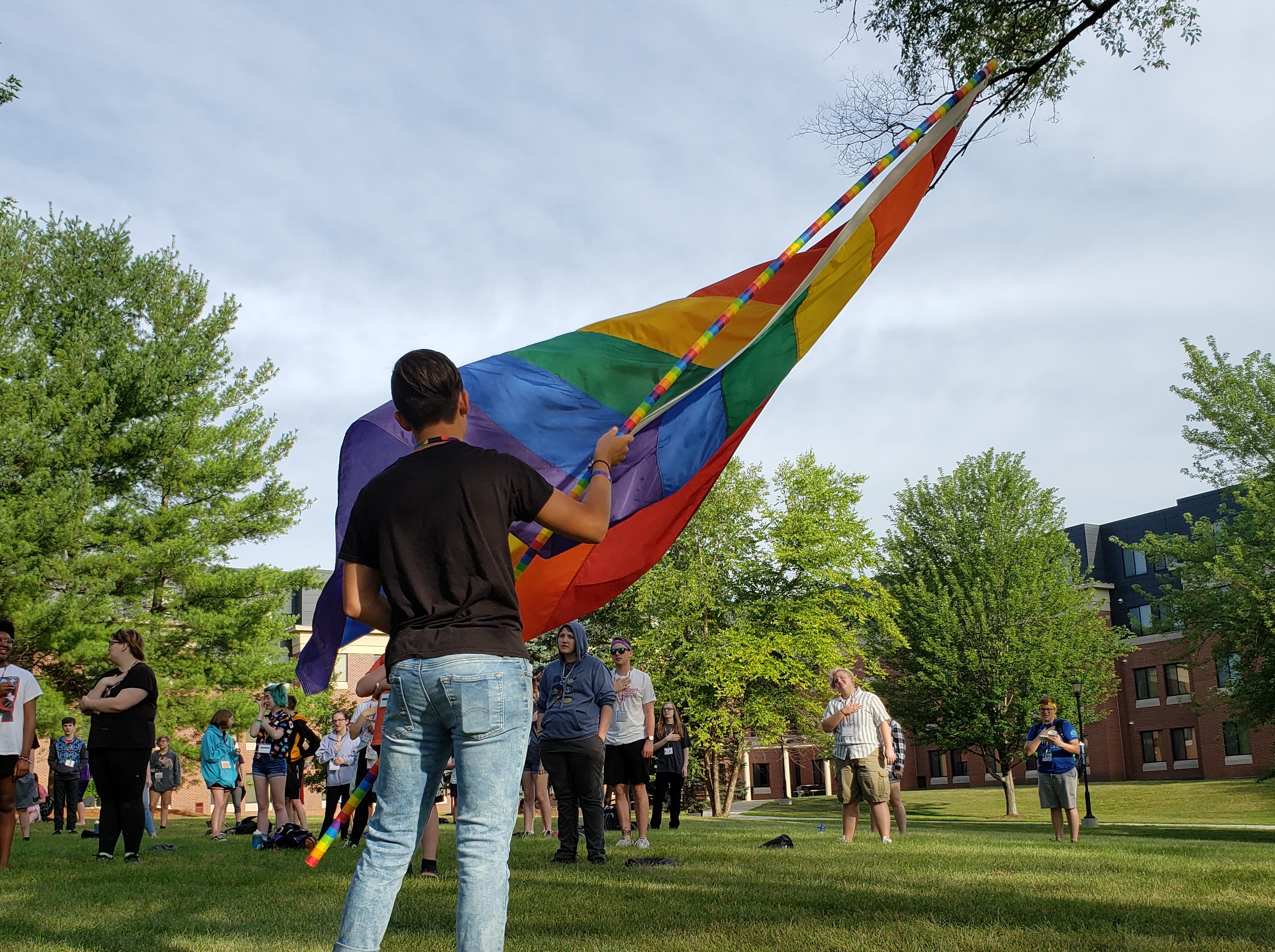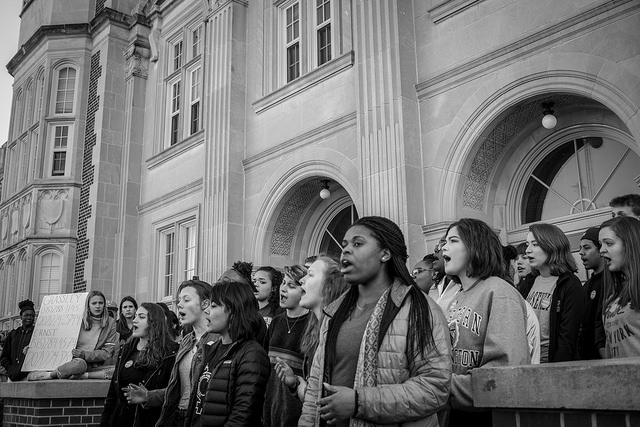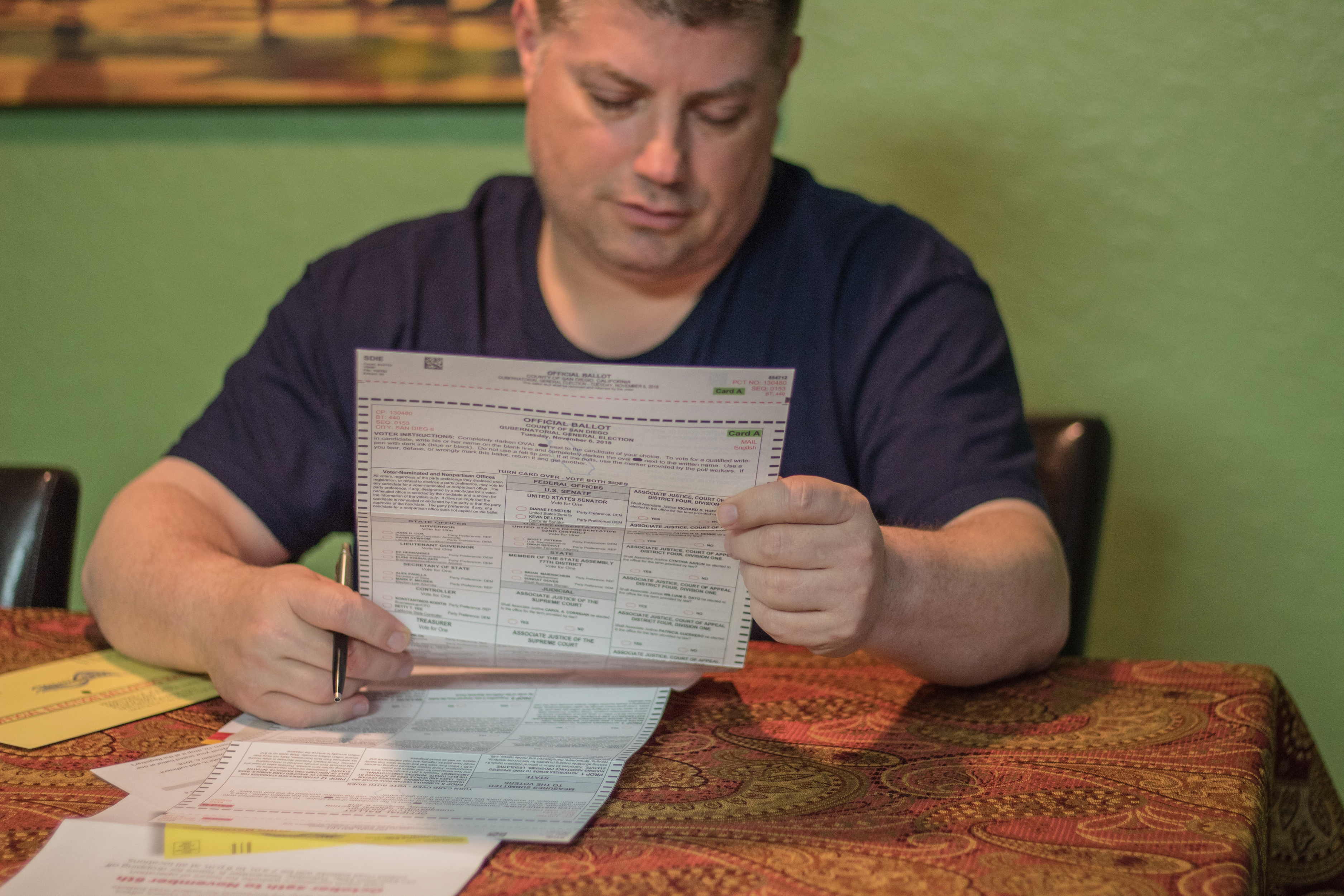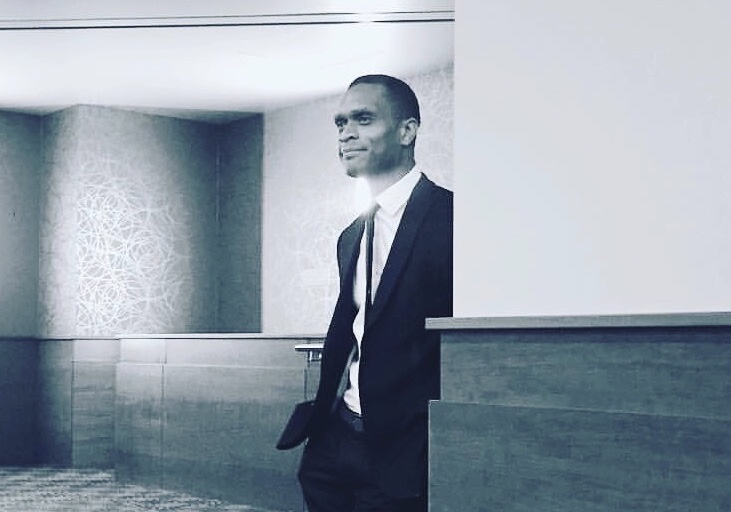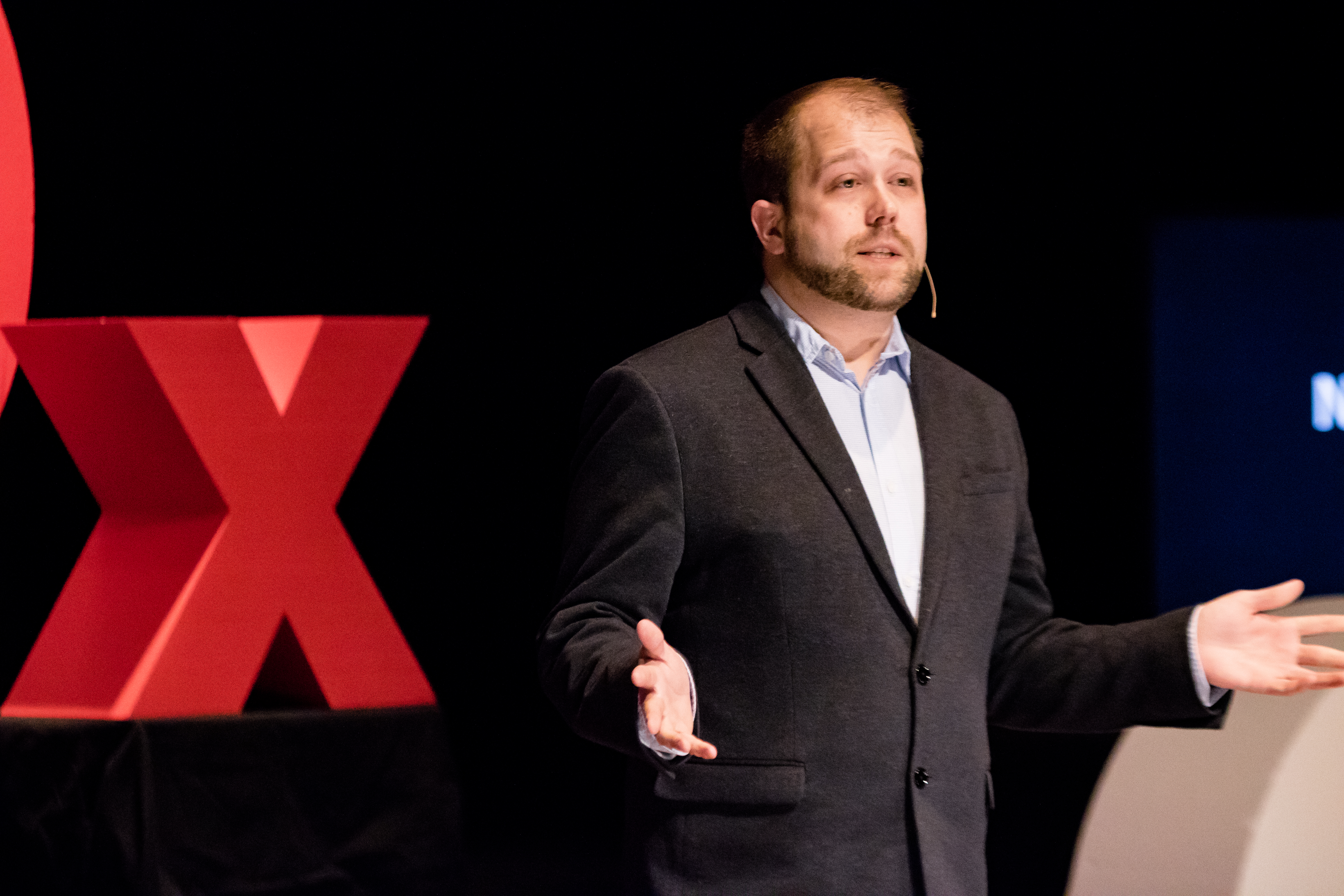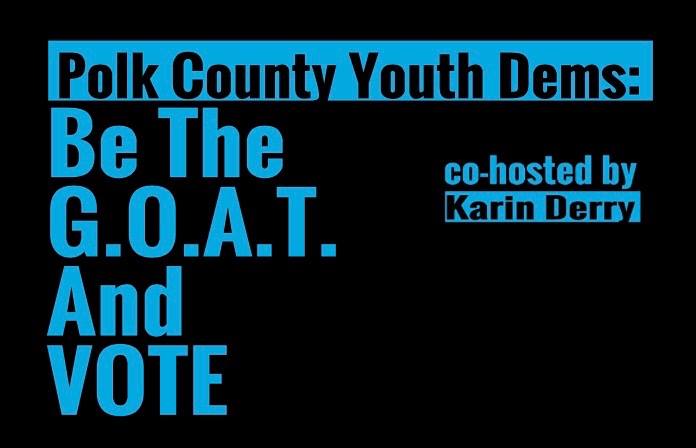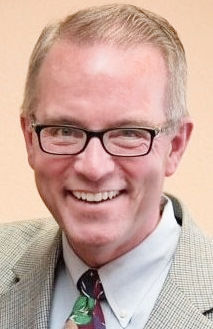The State Central Committee of the Republican Party of Iowa went outside the box yesterday in selecting a new party chairman. They picked Matt Strawn, best known as part of the group that owns the Iowa Barnstormers arena football team, instead of someone with experience as an elected official or leader of a county GOP operation.
Strawn began his campaign for the chairmanship as an underdog compared to outgoing state GOP treasurer Gopal Krishna (at one time seen as the front-runner in this race) and former State Representative Danny Carroll. The latter appears to have been the grassroots favorite in the field; he turned out the most enthusiastic supporters to a recent public forum for the state chair candidates and was supported by several conservative Iowa bloggers.
Strawn prevailed with a combination of old-school politicking (a “Pizza and Politics” tour to ten Iowa cities) and a technologically savvy online campaign (a blog with occasional YouTube video postings).
The new Iowa GOP chairman wants to use technology to improve Republicans’ standing with younger voters:
Strawn, 35, noted that Democratic presidential candidate Barack Obama beat Republican John McCain by 2-1 among young adults in Iowa. He said part of the problem is Republicans have failed to use modern communications methods, such as Twitter and Facebook. People are left with the impression that the party either doesn’t know how to use those channels or doesn’t care to, he said. “Either way, we’re sending a terrible message.” […]
Strawn said at a press conference that he would reach out to all age groups as he seeks to build up party registrations, raise money and recruit strong candidates for office. He vowed to regain the majorities in both houses of the Legislature, win back the governorship and make gains in Congress.
He said Republicans could do all those things without watering down the party’s conservative priorities. “If we communicate our beliefs, we can win elections,” he said.
There’s no question that the Republican Party lost young voters by large margins in 2006 and 2008, and not just in Iowa. This map created by Mike Connery shows that if only voters aged 18-29 had cast ballots for president, John McCain would have won fewer than ten states.
Instead of complaining that “a bunch of stupid college students” sank the campaigns of “far superior” candidates such as Carroll (who lost to Eric Palmer for the second time in Iowa House district 75) and Mariannette Miller-Meeks (who lost to Dave Loebsack in Iowa’s second Congressional district), Republicans should be asking themselves why young voters are rejecting their candidates in such large numbers.
Strawn’s answer is that the GOP’s failure to fully exploit new technology is “sending a terrible message” to young voters.
I sincerely hope that Republicans continue to believe that their recent election losses are rooted in communication problems. I think the Republicans’ ideology is what turns off young voters. The tendency for Republicans to campaign on “culture war” issues exacerbates this problem, highlighting the topics that make the party seem out of touch to younger voters.
When I was growing up in the 1980s, the Republican Party did quite well with the 18-30 age group, including college students. In fact, my age cohort is still relatively strong for Republicans. (A chart in this post shows the presidential vote among young Americans for the past 30 years.)
Republican campaign rhetoric in the 1980s tended not to emphasize abortion, the so-called “homosexual agenda” and other polarizing social issues. Will Iowa Republicans be ready to nominate more pro-choice moderates, or at least not demonize slightly less extreme anti-choice candidates, in 2010? Given how many party activists and State Central Committee members are also involved with anti-choice groups, I am skeptical.
The Iowa Supreme Court will rule on the Varnum v Brien case sometime this year. If the majority grants same-sex marriage rights or even state-recognized civil unions, I expect an anti-gay marriage crusade to figure prominently in Republicans’ 2010 gubernatorial and statehouse campaigns. That won’t help the party’s image with young voters, who are overwhelmingly tolerant of same-sex unions. I am not even convinced it would help Republicans with the electorate at large. The only recent Iowa poll on this issue showed that even before the publicity surrounding Varnum v Brien, 58 percent of Iowa voters supported either gay marriage or civil unions.
Some Republicans want their candidates to emphasize economic issues more and do away with “litmus tests” on social issues. Shortly after the election, Doug Gross discussed the Republican Party’s problems on Iowa Public Television. Gross worked for Republican Governors Bob Ray and Terry Branstad in the 1970s and 1980s, and he was the Republican nominee for governor against Tom Vilsack in 2002. Gross had this advice for Republican candidates:
What we really have to do is speak to the fundamental issues that Iowans care about which is I’m working hard every day, in many cases a couple of jobs, my wife works as well, we take care of our kids and yet the government is going to increase our taxes, they’re going to increase spending and they’re going to give that to somebody who is not working. That kind of message will win for republicans among the people we have and we’ve gotten away from that.
Ah yes, the glory days, when Republicans could win by running against “tax and spend” Democrats who supposedly took money away from hard-working Americans and gave it to “welfare queens” and other unemployed ne’er-do-wells.
Suppose the Republican Party of Iowa goes back to the future with this 1980-style message. I am not convinced that this is a winning ticket. Nationwide exit polling from the most recent election showed that a majority of voters believe government should do more, not less. The same exit poll found Barack Obama won even though most people believed Republican claims that he would raise taxes.
Moreover, rising unemployment is not just an issue for lower-income or blue-collar workers. Layoffs are also hitting groups that have trended toward the Democratic Party in the last decade: suburban dwellers, white-collar professionals and college-educated whites generally. Even in affluent neighborhoods, just about everyone knows someone who has been laid off in the past six months. Government assistance to the unemployed may be more popular now than it was in the 1980s.
Losing your job means losing your health insurance for many Americans, which is particularly scary for those who have “pre-existing conditions.” More and more people are delaying routine preventive care and treatment for chronic conditions in this tough economy. I believe that the problems with our health care system are another reason that Republican “small government” rhetoric has less salience now than it did 20 years ago. Just talk to people whose families have been devastated after a private insurance company denied coverage for expensive, medically necessary procedures.
Strawn can’t single-handedly reshape the ideology of the Iowa GOP, even if he wanted to. What can he do, besides use more online social networking tools?
Fundraising must become a big part of Strawn’s job, because Iowa Republicans have fallen behind Democrats in the money race as they’ve lost political power.
Doug Gross touched on this problem in his Iowa Public Television appearance:
Now, what I hear from large givers for the Republican Party is they are tired of losing elections. They think we need to do something different, they think we need the kind of candidates who can appeal to a broader scope of the populous, that we can’t just have litmus tests associated with one particular issue if we’re going to accomplish overall republican goals and we’ve got to accomplish that if we’re going to meet them in terms of the fundraising goal.
Even wealthy people don’t like throwing money away, so Strawn will have to demonstrate that he has a winning strategy if he wants to get major donors to open their wallets yet again.
Gross is also alluding to the fact that a lot of the business community Republicans do not agree with the GOP platform on social issues. Not only that, last year party insiders snubbed one of the all-time largest donors to Iowa Republican candidates, according to Gross:
Marvin Pomerantz is a dear friend of mine and no greater supporter of the republican party than Marvin Pomerantz over the course of his life in terms of financial contributions and otherwise. A few months before he died he wanted to be able to go to the convention because he was John McCain’s chair, finance chair in the state of Iowa and was prohibited from doing so because some member of his family had given to Planned Parenthood. Now, I don’t support Planned Parenthood any more than you do but at the same time you don’t punish somebody who is with us 80% to 90% of the time over an issue like that. That’s how we narrow the party and that’s how we don’t broaden it. We have to get away from that.
Steve Scheffler, the RNC committeeman who sat next to Gross during that taping, did not dispute this account. All I can say is wow. As it turned out, Pomerantz passed away before the Republican convention, so he would not have been able to attend. But his health was known to be poor, and it is beyond belief that delegates to the state GOP convention rejected his desire to go to St. Paul as a delegate, after everything he had done for the party over so many years. I would love to replace our campaign finance system, but with the system we have you just don’t spit on your most generous contributors. I have no doubt that this story traveled widely among Republicans in the business community.
If I were Strawn, I don’t know how I would go about mending fences with offended Republican moderates, because I doubt he has the will or the ability to take social conservatives in the party leadership down a peg.
At the end of the day, I have no idea whether the State Central Committee picked the best person to run the Republican Party yesterday. Krishna’s bizarre public attack on his State Central Committee colleagues (see also his interview with Iowa Independent), just days after he failed to show up at a public forum for candidates seeking to run the party, suggests to me that he lacked the maturity for the job. Carroll’s failure to learn from his 2006 loss to Eric Palmer makes me wonder whether he would be able to turn the party around.
As I’ve written before, Republican prospects for a comeback may have less to do with new GOP leadership than with how well the Democrats govern (in Iowa and nationally). If Governor Chet Culver and state legislative leaders are seen to be doing a good job, Iowa will continue the trend toward becoming a blue state. If Culver and the statehouse leaders screw up, the Republicans may rebound no matter what Strawn does.
That said, Strawn has his work cut out for him if he wants to do more than sit back and wait for Democrats to self-destruct. I don’t think the Republican Party of Iowa can twitter and YouTube its way out of the hole they’re in, especially when it comes to younger voters.
UPDATE: I forgot to mention that Strawn will need to inspire confidence among statehouse Republicans in order to minimize the number of retirements. Four Republicans in the U.S. Senate have already indicated that they plan to retire rather than run for re-election in 2010. Republicans in the Iowa House and Senate may do the same, recognizing the GOP will be the minority party for some time to come. The more open seats the GOP has to defend, the more difficult it will be for them to come back.
Continue Reading...

